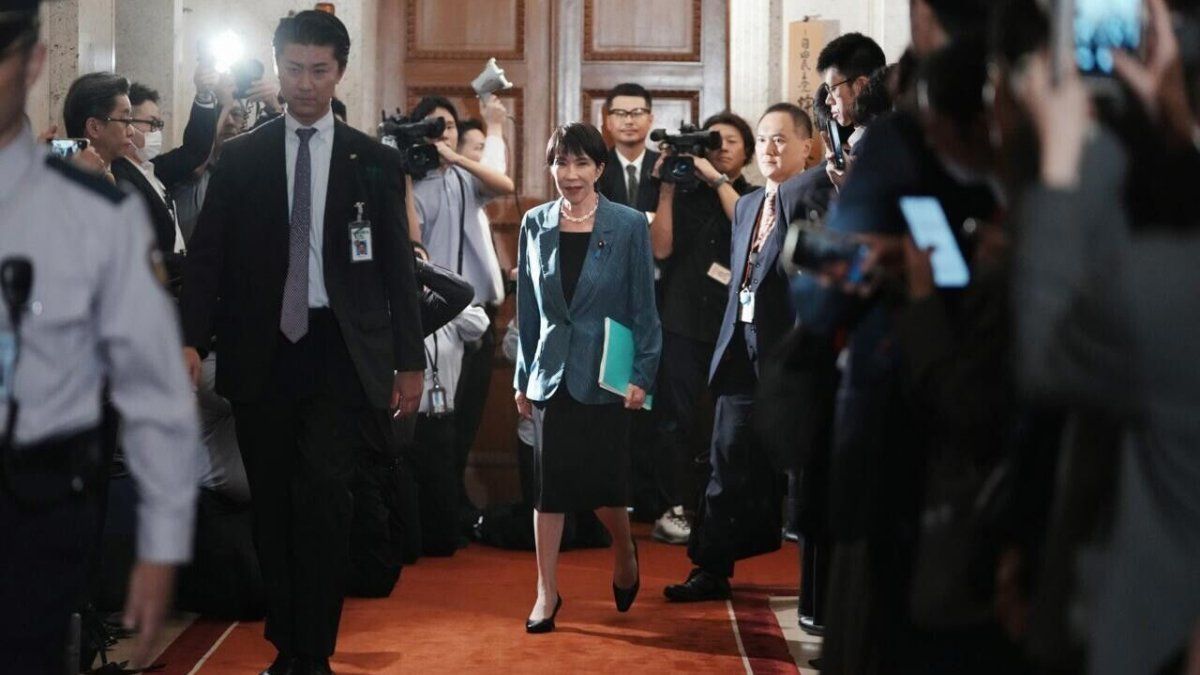The US wants to invest billions in climate protection. That would be well received in Europe – if the plans did not favor American companies. Minister Habeck wants to talk about it in Washington.
Ahead of Vice Chancellor Robert Habeck’s US trip, business groups are pushing for improvements in America’s anti-inflation law. The so-called Inflation Reduction Act (IRA) provides for billions in investments in climate protection, but ties subsidies and tax credits to companies using US products or producing them themselves in the USA – which causes concerns in Europe about competitive disadvantages. Associations warn of a trade dispute and demand better production conditions in Europe.
Habeck (Greens) is traveling to Washington today for political talks. On Tuesday he wants to meet with his French counterpart Bruno Le Maire, including US Treasury Secretary Janet Yellen, US Trade Representative Katherine Tai and US Secretary of Commerce Gina Raimondo, as the Federal Ministry of Economics and Technology announced shortly before the trip.
Shortly before the trip, Habeck made it clear that the partnership between the United States and Germany has been immensely important, especially since the Russian attack on Ukraine. They had moved even closer together since the beginning of the war and had acted together. “This commonality is also a key in the fight against the climate crisis,” says Habeck. “The US is now aligning its economy with green markets and driving cost reductions in the development of climate-friendly technologies. That’s good, but it is important that this happens in friendly, fair competition and thereby leads to progress in climate-neutral technologies.”
“Retaliation would be counterproductive”
When implementing the US law, discrimination against foreign companies must largely be avoided, said the chief executive of the Federation of German Industries (BDI), Tanja Gönner, of the German Press Agency in Berlin. It is good that there is already a joint working group for this from the EU Commission and the US government.
Gönner classified the US criteria for tax credits for electric cars or requirements for the purchase of domestic goods and services or for their share in the finished product in other areas as problematic.
“The EU and the US should definitely ensure that the upcoming steps do not lead to a trade conflict,” warned Gönner. “European retaliatory measures in the form of tariffs would be counterproductive.” Requirements for the purchase of European goods and services are not a solution for the open economies of Europe. She called for “a cautious trade policy response”. “A subsidy race would be at the expense of taxpayers and competition as a whole.”
Gönner emphasized that it must be easier for companies in the EU to obtain and receive meaningful funding. “The planning and approval procedures in Germany and the EU for new industrial plants, for energy production plants and for the necessary infrastructure take far too long,” criticized Gönner. “The EU should focus its work on innovations and future technologies.” The USA could also be a role model: “The tax credits follow a pragmatic approach to promoting climate-friendly technology quickly and unbureaucratically and creating a high level of investment security.”
The strong promotion of renewable energies and green technologies offers opportunities, said Gönner, for example for mechanical engineering and many supplier industries. The expansion of renewable energies is expected to accelerate significantly in the USA, which is putting pressure on the energy-intensive industry in Europe in particular – hydrogen and renewable electricity as energy sources urgently need to be promoted here for climate-friendly conversion.
Framework conditions in Europe are to be improved
In principle, the German Association of the Automotive Industry (VDA) also has a lot of good things to say about the US program. “The USA is pursuing a consistent policy that creates the conditions for paving the way for climate neutrality in the transport sector as well,” explained VDA President Hildegard Müller. Carbon neutrality means that all greenhouse gases must be avoided or stored. The promotion of electromobility is also good – whereby the “protectionist and discriminatory regulatory approach” stands in contradiction to an open trade in goods.
“The transatlantic partnership must be deepened instead of being provided with hurdles,” demanded Müller. It is important to prevent the US funding practice from being followed by imitators and counter-reactions. The main thing is to improve the framework conditions in Europe. “Location policy and the commitment to free and fair trade are now of essential importance for Europe. The industrial plan presented by the EU Commission last week goes in the right direction Implementation.”
For its part, the EU Commission sees a need for investments of hundreds of billions of euros in climate-friendly technologies for Europe, without quantifying this sum more precisely. Specifically, it is about renewable energies, heat pumps, battery production and the use and storage of climate-damaging CO2. The Brussels authority wants to expand and accelerate access to funding. In addition, she would like to give the EU countries more freedom for targeted subsidies.
The President of the German Renewable Energy Federation, Simone Peter, welcomed Habeck’s trip. “It is important to reach out now and work together with the United States to meet the Paris climate goals,” she said. However, the European answer should not be a “transatlantic trade conflict through market foreclosure”. Both continents benefited from fair access to each other’s markets, common standards for climate protection technologies and exceptions to local production regulations. “Germany must now make itself strong for this.”
Source: Stern




